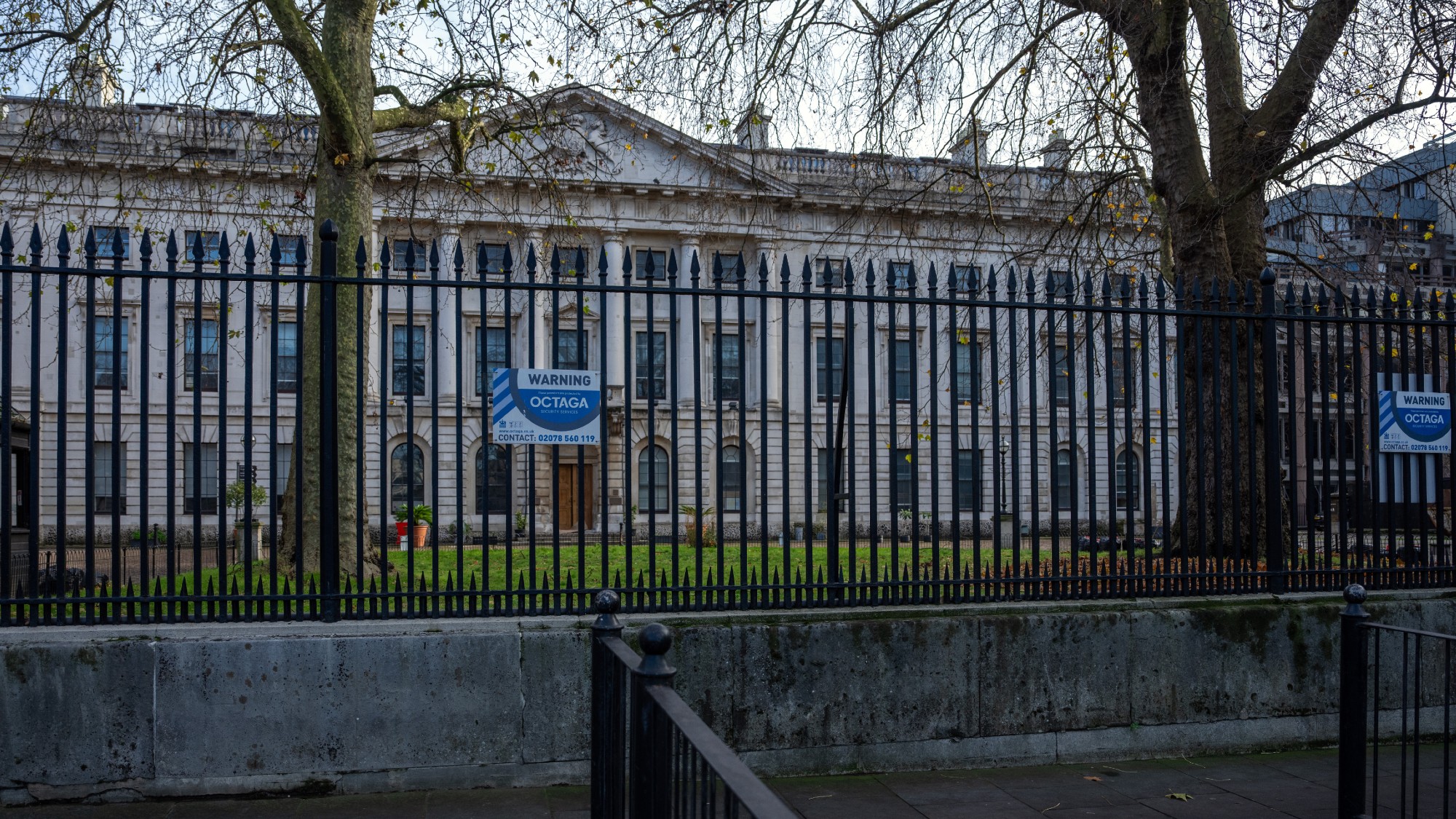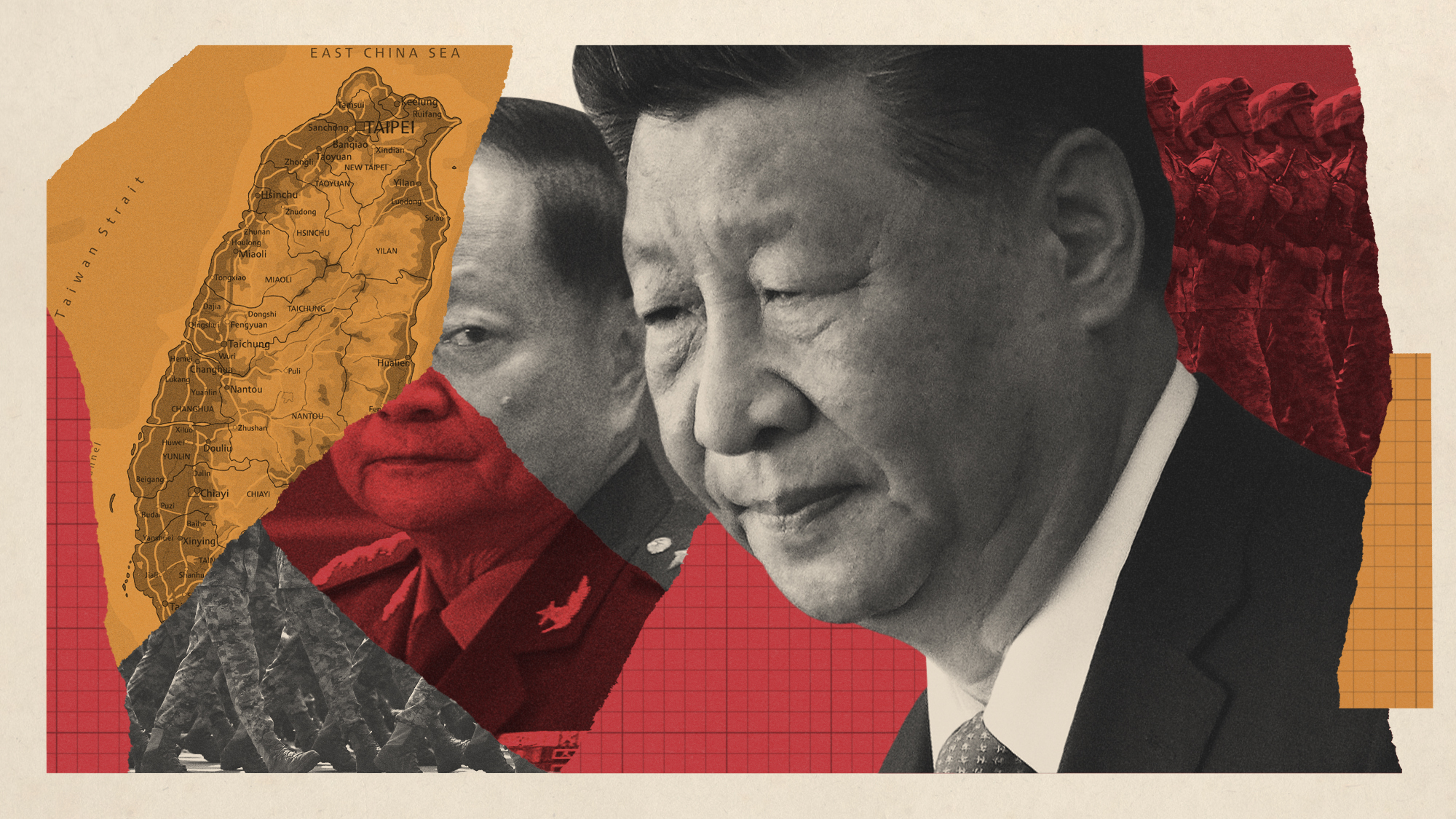China's London super-embassy
The People's Republic wants to build a massive new embassy in central London, and a lot of people aren't happy about it

A free daily email with the biggest news stories of the day – and the best features from TheWeek.com
You are now subscribed
Your newsletter sign-up was successful
Local residents, Tower Hamlets Council, the Metropolitan Police, the security services, the Trump administration and five British governments have all expressed concerns about the Chinese proposal to build the largest diplomatic mission in Europe next to the Tower of London.
Angela Rayner, the Secretary of State for Housing, has until 9 September to decide whether to let the project go ahead. The expectation is that she will approve it, but critics warn that the building could become a "nest of spies" in the heart of the capital.
What exactly do the Chinese want to build?
In May 2018, the Chinese government paid £255 million for Royal Mint Court, a 5.5-acre complex of historic buildings that housed the Royal Mint from 1810 until 1967, when operations moved to Llantrisant in Wales.
The Week
Escape your echo chamber. Get the facts behind the news, plus analysis from multiple perspectives.

Sign up for The Week's Free Newsletters
From our morning news briefing to a weekly Good News Newsletter, get the best of The Week delivered directly to your inbox.
From our morning news briefing to a weekly Good News Newsletter, get the best of The Week delivered directly to your inbox.
Its main buildings – neoclassical structures completed by Robert Smirke, who designed the British Museum – are Grade II* listed, meaning they can't be altered significantly. However, the British "starchitect" David Chipperfield's plans for the new embassy involve reconfiguring the site to include 225 residences, offices and underground rooms, a "Cultural Exchange" building, and a public square to allow access to the remains of a medieval abbey on the site.
Nearby pedestrian pathways, bicycle racks and green spaces will be "upgraded and enhanced", a Chinese embassy spokesperson told Inside Housing, while "the existing property, courtyard landscaping, and the visual appeal of the public areas will be comprehensively improved".
What's the objection to that?
There are many. The Metropolitan Police have been worried about political protests, which already dog the existing Chinese embassy in Marylebone. The new site overlooks a major route into central London, and thousands of protesters could block the road, presenting a public safety problem. In 2022, a physical clash between Chinese consular officials and protesters in Manchester focused minds on the issue. The plans envisage a public courtyard, but because of the legal inviolability of diplomatic premises, this area would be beyond the reach of police or ambulances.
For some critics, there are also issues of national symbolism. Visitors to the Tower of London "would turn left and see the flag of the Chinese Communist Party flying", a local Conservative councillor said in 2022. "Can you imagine President Macron permitting this next to the Arc de Triomphe?" Mainly, though, the concerns relate to security.
A free daily email with the biggest news stories of the day – and the best features from TheWeek.com
What sort of security concerns?
Embassies, being beyond the reach of local security services, often serve as spying hubs. The planned mission, argues the Centre for Strategic and International Studies (CSIS), a US think tank, is likely to provide Chinese intelligence with "a myriad of espionage opportunities".
Most alarming is that the site sits directly atop communication lines and fibreoptic cables running between the City of London and Canary Wharf, Britain's main financial centres. These could be physically tapped: Beijing's plans include a large basement, several underground rooms (dubbed "spy dungeons" by the press) and tunnels. The site is also close to three big data centres, and a BT telephone exchange. The plans feature a "rooftop structure of unclear purpose", which the CSIS fears could be used for signals intelligence collection.
Who is leading the objections?
They began with the residents of Saint Mary Graces Court, a housing development next to the site, who soon after the sale objected that the Chinese state would become their "superior landlord". Local opposition grew, fed by geopolitics: China's many human rights abuses against Uyghurs and other Muslim minorities are felt strongly in Tower Hamlets, the London borough with the largest Muslim population; it also has a large Hong Kong Chinese population, including refugees who arrived after Beijing's political crackdown there in 2019/20.
In 2022, Tower Hamlets Council refused permission for the development. It did the same to a resubmitted application last year. Meanwhile, it has been revealed that MI5, GCHQ, the Bank of England and Innovate UK, a tech quango, have all issued warnings. The Trump administration has also pitched in. A senior US White House official recently told The Sunday Times that the United States was "deeply concerned".
What is the current situation?
Rishi Sunak's government declared the "golden era" of Anglo-Chinese relations to be over, and was probably happy that Tower Hamlets rejected it. However, Keir Starmer's Labour Government has pursued a reset with China in the name of economic growth, and President Xi Jinping is said to have raised the embassy matter personally with Starmer. Angela Rayner "called in" the plans, which means that, after a planning inspection, the decision will be taken by central government. Other Cabinet ministers have signalled cautious approval for the project. And the Met has withdrawn its earlier objections.
So is Beijing pushing hard?
Apparently. President Xi has various points of leverage in negotiations with the Government. One is the £600 million in Chinese investment that Rachel Reeves secured during a trip to China in January. Another is the dilapidated British embassy on Guanghua Road in Beijing, which dates from 1959. The UK plans to rebuild it at a cost of £100 million; planning permission has not been forthcoming, and presumably won't be until the London embassy matter is resolved.
For their part, ministers are confident the security worries can be easily managed: as Peter Kyle, the Science, Innovation and Technology Minister, put it this month, they will be "taken care of assiduously in the planning process". Anticipating a yes from Rayner, the local residents' association is already raising funds for a judicial review.
-
 The EU’s war on fast fashion
The EU’s war on fast fashionIn the Spotlight Bloc launches investigation into Shein over sale of weapons and ‘childlike’ sex dolls, alongside efforts to tax e-commerce giants and combat textile waste
-
 How to Get to Heaven from Belfast: a ‘highly entertaining ride’
How to Get to Heaven from Belfast: a ‘highly entertaining ride’The Week Recommends Mystery-comedy from the creator of Derry Girls should be ‘your new binge-watch’
-
 The 8 best TV shows of the 1960s
The 8 best TV shows of the 1960sThe standout shows of this decade take viewers from outer space to the Wild West
-
 The UK expands its Hong Kong visa scheme
The UK expands its Hong Kong visa schemeThe Explainer Around 26,000 additional arrivals expected in the UK as government widens eligibility in response to crackdown on rights in former colony
-
 ‘Hong Kong is stable because it has been muzzled’
‘Hong Kong is stable because it has been muzzled’Instant Opinion Opinion, comment and editorials of the day
-
 Democrats push for ICE accountability
Democrats push for ICE accountabilityFeature U.S. citizens shot and violently detained by immigration agents testify at Capitol Hill hearing
-
 Fulton County: A dress rehearsal for election theft?
Fulton County: A dress rehearsal for election theft?Feature Director of National Intelligence Tulsi Gabbard is Trump's de facto ‘voter fraud’ czar
-
 ‘Melania’: A film about nothing
‘Melania’: A film about nothingFeature Not telling all
-
 What do Xi’s military purges mean for Taiwan?
What do Xi’s military purges mean for Taiwan?Today’s Big Question Analysts say China’s leader is still focused on reunification
-
 Greenland: The lasting damage of Trump’s tantrum
Greenland: The lasting damage of Trump’s tantrumFeature His desire for Greenland has seemingly faded away
-
 Minneapolis: The power of a boy’s photo
Minneapolis: The power of a boy’s photoFeature An image of Liam Conejo Ramos being detained lit up social media